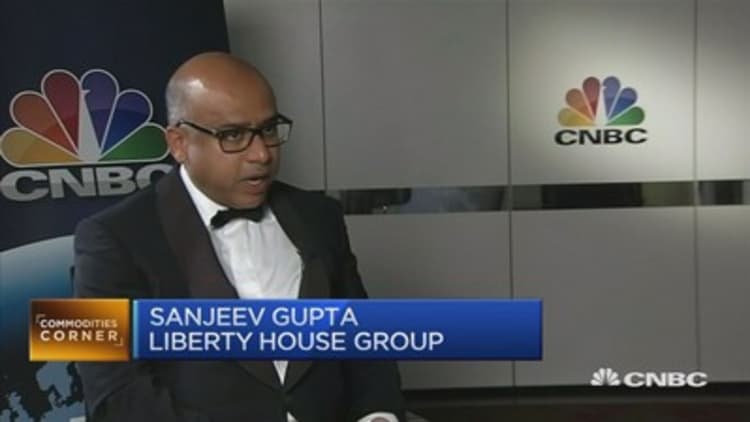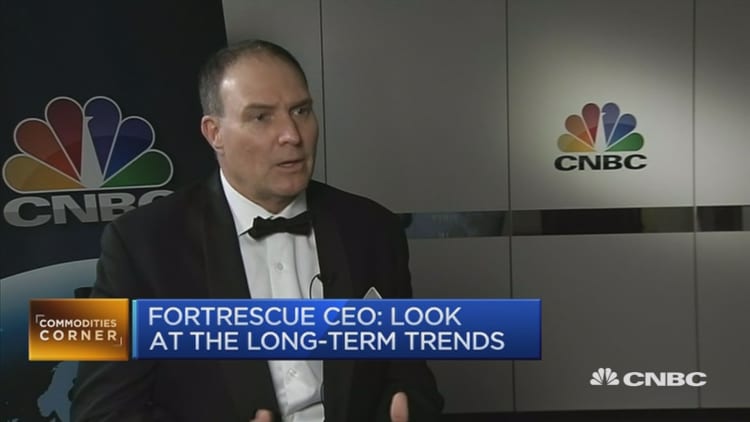
The U.S. is setting a strong example that the U.K. must follow as it presses ahead with steel recycling and gives a boost to its domestic steelmaking industry, says the executive chairman of Liberty House Group.
"It's not rocket science to imagine that to recycle something is more competitive than to make it from scratch," Sanjeev Gupta told CNBC at the Platts Global Metals Awards on Thursday, noting that most energy and technology has already gone into the creation of the original product.
"It has the great added advantage that it's environmentally-friendly and has a much lower carbon footprint compared to making primary steel," he added, before highlighting the success the U.S. has had in turning domestic scrap into steel and then selling the latter domestically.
"That is an infallible model because it doesn't carry price risks, it's not subject to the volatility of commodity prices and you are fundamentally adding value always because scrap prices very closely follow steel prices," he continued, blaming the U.K.'s failure to mimic the success to date on the lack of attention the government has paid to industry generally in recent decades.

Observing that industry's share of U.K. gross domestic product (GDP) has slumped from 30 – 40 percent in the 1970s to around 10 percent today as the services sector has taken priority, Gupta asserts that it will be necessary to heed the decline of industry if we are to avoid generating populist discontent and a divided country, as has been reflected in outcomes such as last summer's Brexit vote.
While the company that Gupta founded in 1992 would benefit from the growth of steel recycling within the U.K. given that the process is at the core of its business model, the profit risk lies more squarely with producers of steel's primary inputs, such as iron ore.
Yet this is not a short-term concern for Nev Power, chief executive officer (CEO) of Fortescue Metals Group, the world's third largest iron ore producer, who describes recycling as a natural evolution for the steel industry.
"It's actually a very positive story. Steel is one of the most recycled materials in the world and I think that's fantastic that we're able to bring redundant steel back out of the economies and recycle it with electric arc furnaces and make steel that way," he said, also noting the positive factor of a smaller environmental footprint made via this process.
The mining CEO noted, however, that emerging economies won't currently have the same supply of scrap available as developed markets.
"In mature economies, like the U.S., there's a lot of scrap, particularly from redundant automobiles but we know that China and Asia won't have the same population of cars that the U.S. has so there won't be the same amount of scrap," he explained.
Looking ahead to how Fortescue and its peers will cope with a future in which recycled steel plays a significantly greater role in the industry, Power says that they'll be able to move on.
"As one economy starts to mature and use more recycled steel, we'll be moving on to develop the next economy. There's probably 3 – 3.5 billion people in emerging economies throughout Asia, the Middle East and even Northern Africa which are a relatively short sea distance from Australia," he concluded.



